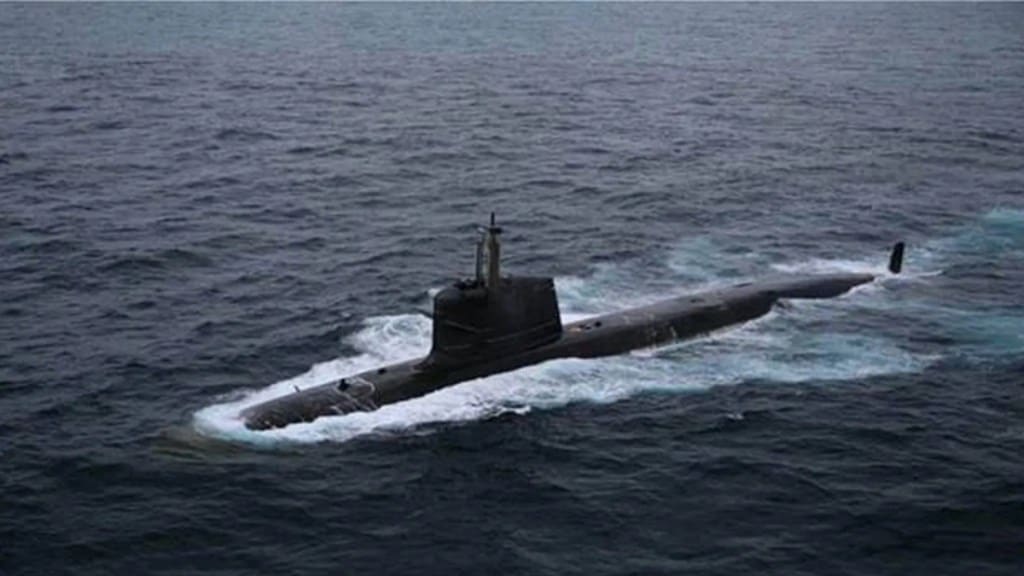India is set to witness two crucial back-to-back visits later this month, as German Chancellor Olaf Scholz and Spanish Prime Minister Pedro Sánchez arrive with the aim of enhancing bilateral cooperation, with a particular focus on defence. At the heart of these visits is India’s much-anticipated decision on Project 75(I), an ambitious project involving the construction of six advanced submarines equipped with air-independent propulsion (AIP) systems. Both Germany and Spain are vying for this significant defence contract, which could strengthen strategic partnerships with India.
Germany’s Push for Defence Collaboration
Chancellor Olaf Scholz will kick off his visit to New Delhi on October 25, accompanied by a delegation that includes Germany’s Defence Minister, Boris Pistorius. The discussions between Scholz and Indian Prime Minister Narendra Modi are expected to revolve heavily around defence cooperation, particularly Germany’s bid for the P75(I) project.
Germany’s ThyssenKrupp Marine Systems (TKMS) has partnered with the Indian state-run Mazagon Dock Shipbuilders Ltd (MDL) for this mega submarine contract. TKMS, initially reluctant due to its heavy order books and concerns about the Indian procurement process, reconsidered after the German government encouraged its participation. The German firm is eager to secure a government-to-government deal with India for the submarine project, recognizing its strategic importance.
Although TKMS showcased its AIP system during the Indian Navy’s field evaluation trial (FET), the system’s smaller size—designed for the Type 214 submarines—was noted as a challenge, as the Indian Navy requires a larger submarine platform. However, TKMS remains optimistic, given Germany’s strong industrial expertise and historical defence ties with India.
In addition to the submarine project, Scholz’s visit will likely cover broader topics, including renewable energy, green technologies, and digital cooperation. Both sides aim to elevate their defence and technological collaboration in line with India’s growing focus on indigenization and strategic autonomy in the defence sector.
Spain’s First Visit in 18 Years: Building on Defence and Trade
Following Scholz’s departure, Spanish Prime Minister Pedro Sánchez will arrive on October 27 for a three-day visit. His visit marks the first official trip by a Spanish leader to India in 18 years and reflects the growing importance of India-Spain relations. According to the Ministry of External Affairs, Sánchez will be accompanied by his spouse, Ms Begona Gomez, and a high-level delegation.
Defence cooperation will be a significant aspect of Sánchez’s visit, as Spanish firm Navantia has partnered with L&T to compete for the same P75(I) submarine project. Navantia showcased its AIP system during the FET, which has been thoroughly tested and approved by the Spanish Navy, with the first submarine equipped with the system expected to be operational by 2026. Like Germany, Spain is seeking a government-to-government deal for the project, viewing it as a vital opportunity to enhance strategic defence ties with India.
In addition to defence, Sánchez’s visit will also focus on expanding cooperation in sectors such as aviation, trade, and industry.
One of the key highlights will be the inauguration of the Final Assembly Line Plant of C295 aircraft at Vadodara, a significant “Make in India” initiative in the aviation sector. This project, a collaboration between Tata Advanced Systems and Airbus Spain, symbolizes Spain’s commitment to supporting India’s push for self-reliance in defence production.
Expanding Bilateral Cooperation Across Multiple Sectors
Sánchez’s visit goes beyond defence, with a wide range of sectors on the agenda for deeper collaboration. During the official talks, India and Spain are expected to explore opportunities in trade and investment, IT, infrastructure, and renewable energy. Spain has been keen on expanding its presence in India’s rapidly growing green energy sector, and the talks will likely focus on joint ventures and technological exchanges in this area.
The Spanish leader will also visit Mumbai, where he will engage with trade and industry leaders, think tanks, and representatives of the film industry. This visit to Mumbai underscores Spain’s interest in strengthening economic and cultural ties with India’s commercial capital. Several Memorandums of Understanding (MoUs) are expected to be signed, further cementing cooperation across sectors like pharma, agro-tech, and biotech.
Both sides are looking to review the entire spectrum of their bilateral relationship, which gained new momentum after Prime Minister Modi’s visit to Spain in 2017.
According to MEA, “President Sánchez’s visit will be an opportunity to review the entire gamut of our bilateral relations and further deepen the partnership across various sectors, including trade and investment, innovation, infrastructure, and defence.”
Strengthening Strategic Ties
For both Germany and Spain, securing the P75(I) submarine project represents a crucial step in deepening their strategic partnerships with India. The visits by Scholz and Sánchez reflect the broader push by European nations to strengthen defence, technological, and economic ties with India, particularly as the country continues to modernize its military capabilities and enhance its role in global supply chains.
With the Indian Navy having completed its evaluation trials for the AIP systems from both TKMS and Navantia, the focus is now on the government’s final decision. The selection of either Germany or Spain for the P75(I) project will be a significant marker in India’s defence modernization journey and will have far-reaching implications for the future of bilateral ties with both nations.
In the coming days, as India hosts these two key European leaders, the discussions will undoubtedly focus on defence, trade, and strategic cooperation, signalling the growing importance of India’s partnerships with both Germany and Spain.

